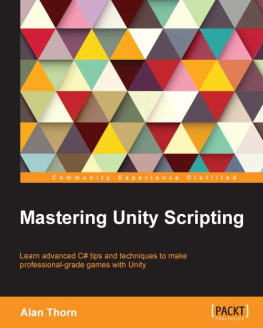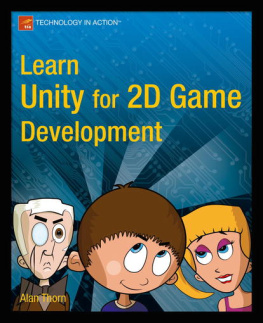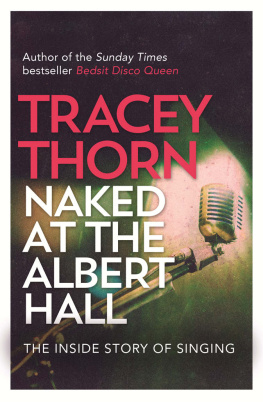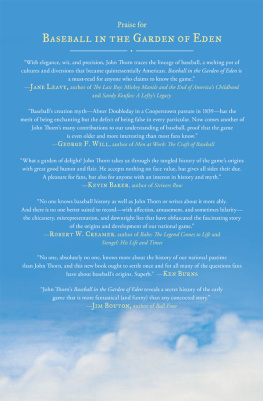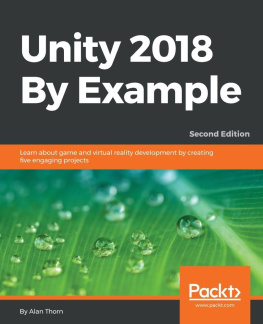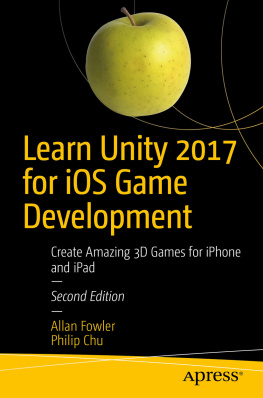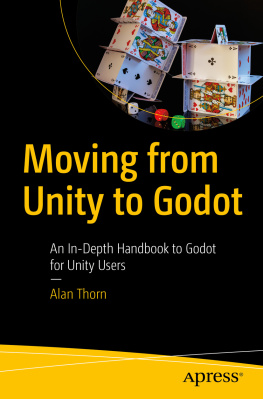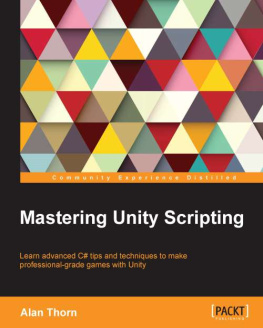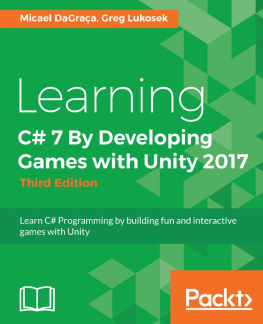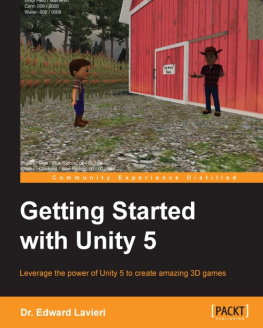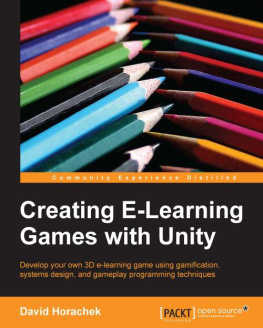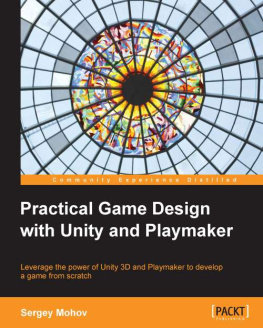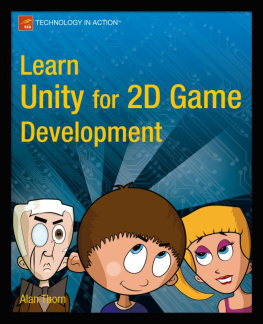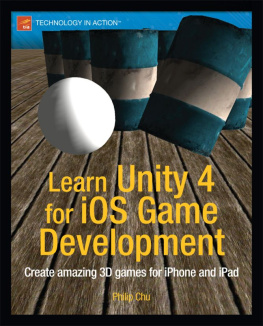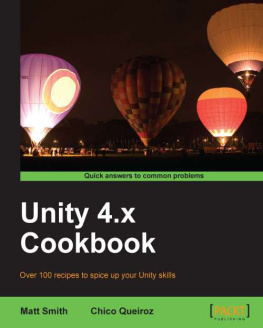Alan has worked as a freelancer on over 500 projects, including games, simulators, kiosks, serious games, and augmented reality software for game studios, museums, and theme parks worldwide. He is currently working on an upcoming adventure game, Mega Bad Code , for desktop computers and mobile devices. Alan enjoys graphics. He is fond of philosophy, yoga, and also likes to walk in the countryside. His e-mail ID is <>.
About the Reviewers
Dylan Agis is a programmer and game designer, currently doing freelance work on a few projects while also developing a few projects of his own. He has a strong background in C++ and C# as well as Unity, and loves to solve problems.
I would like to thank Packt Publishing for giving me the chance to review the book, and the author for making it an interesting read.
John P. Doran is a technical game designer who has been creating games for over 10 years. He has worked on an assortment of games in teams with members ranging from just himself to over 70 in student, mod, and professional projects.
He previously worked at LucasArts on Star Wars: 1313 as a game design internthe only junior designer on a team of seniors. He was also the lead instructor of DigiPen-Ubisoft Campus Game Programming Program, instructing graduate-level students in an intensive, advanced-level game programming curriculum.
John is currently a technical designer in DigiPen's Research & Development department. In addition to that, he also tutors and assists students on various subjects while giving lectures on game development, including C++, Unreal, Flash, Unity, and more.
He has been a technical reviewer for nine game development titles, and is the author of Unity Game Development Blueprints , Getting Started with UDK , UDK Game Development [Video] , and Mastering UDK Game Development HOTSHOT , all by Packt Publishing. He has also co-authored UDK iOS Game Development Beginner's Guide , Packt Publishing .
Alessandro Mochi has been playing video games since the Amstrad and NES era, tackling all the possible fields: PC, console, and mobile. Large or small video games are his love and passion. RPGs, strategy, action platformers nothing can escape his grasp.
With a professional field degree in IT, a distinction in project management diploma, and fluent in Spanish, Italian, and English, he gained sound knowledge of many programs. New challenges are always welcome.
Currently a freelance designer and programmer, he helps young developers turn their concepts into reality. Always traveling all over the world, he is still easy to find on his portfolio at www.amochi-portfolio.com.
Ryan Watkins likes to party. He can be found on LinkedIn at www.linkedin.com/in/ryanswatkins/.
www.PacktPub.com
Support files, eBooks, discount offers, and more
For support files and downloads related to your book, please visit www.PacktPub.com.
Did you know that Packt offers eBook versions of every book published, with PDF and ePub files available? You can upgrade to the eBook version at > for more details.
At www.PacktPub.com, you can also read a collection of free technical articles, sign up for a range of free newsletters and receive exclusive discounts and offers on Packt books and eBooks.
https://www2.packtpub.com/books/subscription/packtlib
Do you need instant solutions to your IT questions? PacktLib is Packt's online digital book library. Here, you can search, access, and read Packt's entire library of books.
Why subscribe?
- Fully searchable across every book published by Packt
- Copy and paste, print, and bookmark content
- On demand and accessible via a web browser
Free access for Packt account holders
If you have an account with Packt at www.PacktPub.com, you can use this to access PacktLib today and view 9 entirely free books. Simply use your login credentials for immediate access.
Preface
Mastering Unity Scripting is a concise and dedicated exploration of some advanced, unconventional, and powerful ways to script games with C# in Unity. This makes the book very important right now because, although plenty of "beginner" literature and tutorials exist for Unity, comparatively little has been said of more advanced subjects in a dedicated and structured form. The book assumes you're already familiar with the Unity basics, such as asset importing, level designing, light-mapping, and basic scripting in either C# or JavaScript. From the very beginning, it looks at practical case studies and examples of how scripting can be applied creatively to achieve more complex ends, which include subjects such as Debugging, Artificial Intelligence, Customized Rendering, Editor Extending, Animation and Motion, and lots more. The central purpose is not to demonstrate abstract principles and tips at the level of theory, but to show how theory can be put into practice in real-world examples, helping you get the most from your programming knowledge to build solid games that don't just work but work optimally. To get the most out of this book, read each chapter in sequence, from start to finish, and when reading, use a general and abstract mindset. That is, see each chapter as being simply a particular example and demonstration of more general principles that persist across time and spaces; ones that you can remove from the specific context in which I've used them and redeploy elsewhere to serve your needs. In short, see the knowledge here not just as related to the specific examples and case studies I've chosen, but as being highly relevant for your own projects. So, let's get started.

